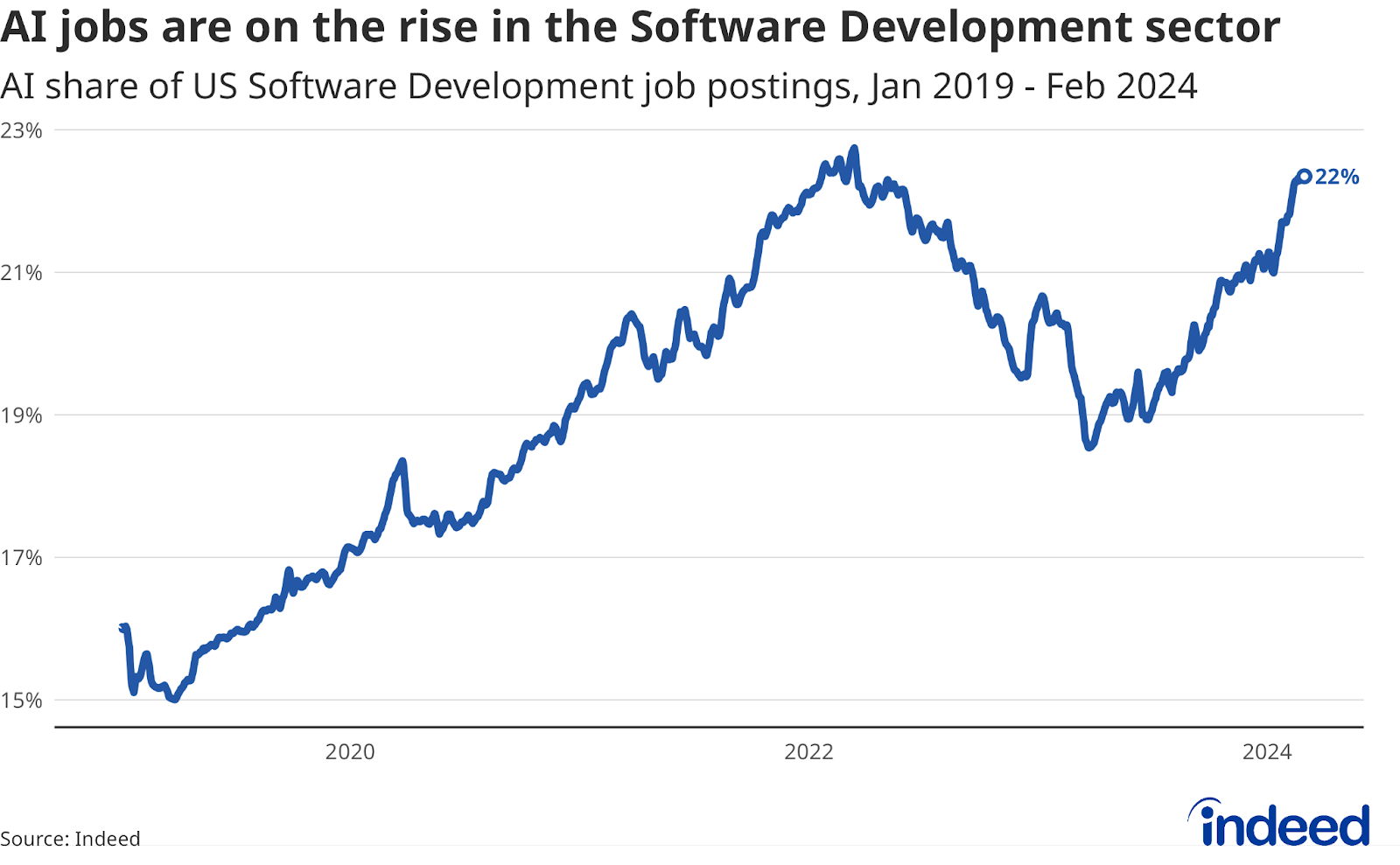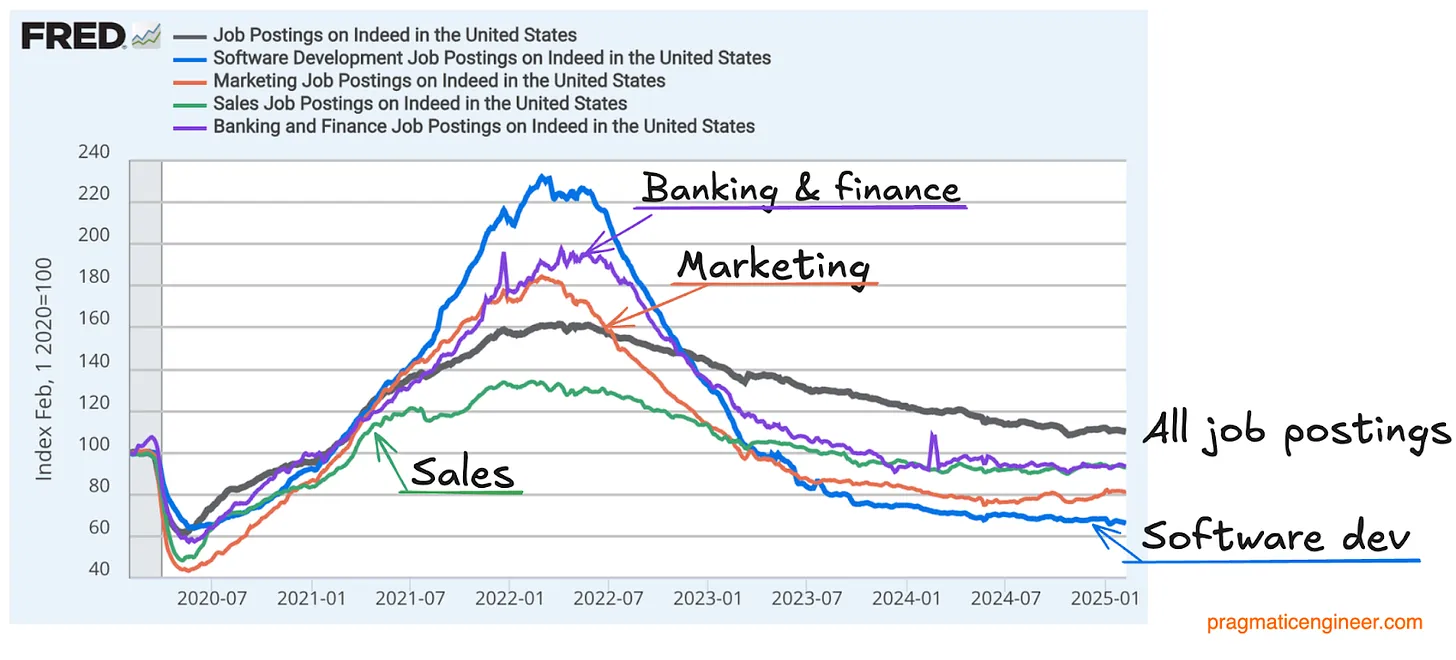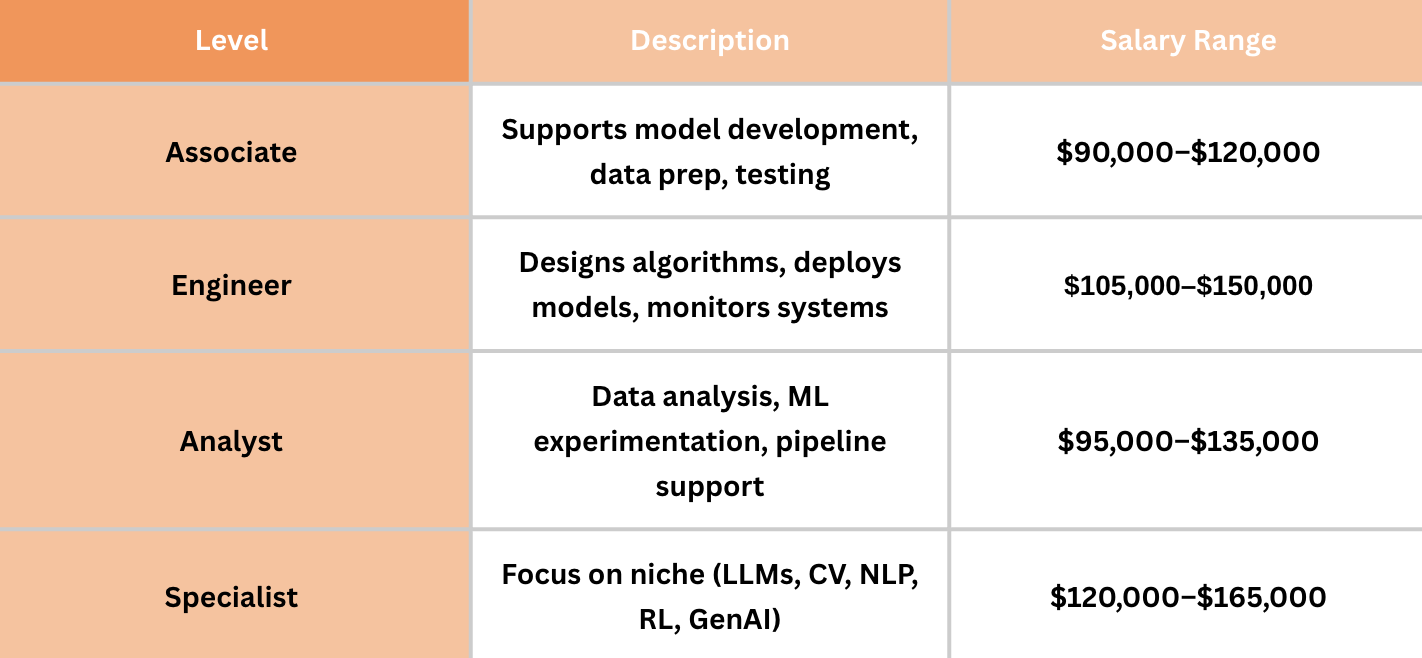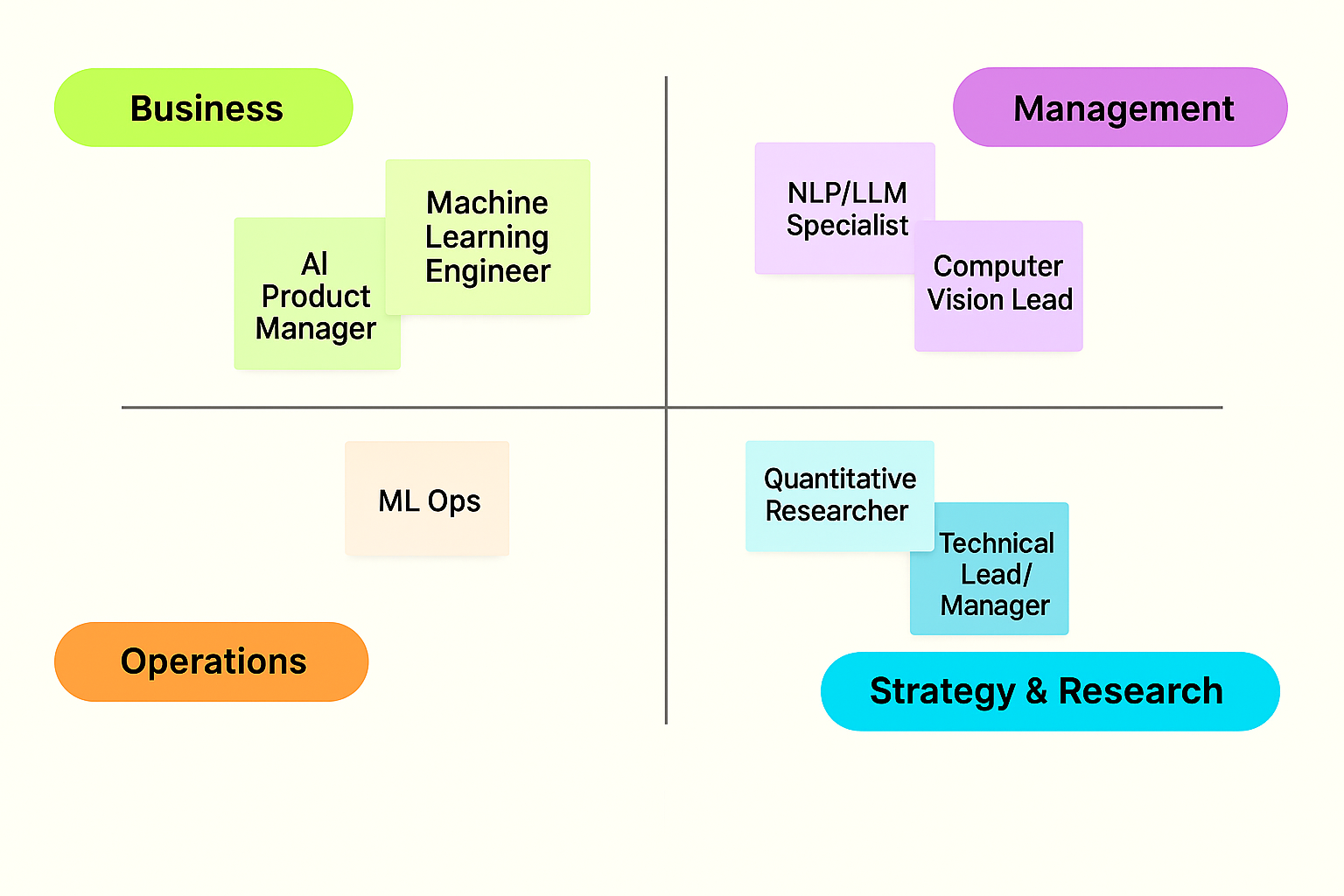Entry Level Job Market Report
Machine Learning Engineer
Overall Rating
Very High
Competition
High
Avg Entry Salary
$123k (USD)
Job Satisfaction
3.9/5
Growth Potential
Very High
About
Machine Learning Engineers design, build, and optimize learning algorithms to extract insights from data and deploy AI systems.
Overall Rating
High
Machine Learning jobs remain among the most in-demand technical roles, as AI adoption accelerates across industries. However, competition is fierce: most openings require candidates to demonstrate strong coding, statistical expertise, and practical experience.
Competition
Very High
Entry-level machine learning roles are highly competitive in 2025 for several interrelated reasons:
Experience Inflation: Few companies offer “pure” entry-level ML jobs. Most roles require demonstrable experience with ML frameworks, internships, or academic/portfolio projects, making it challenging for new graduates to break in.
AI Automation & Evolution: Many routine ML and data tasks are now automated or heavily assisted by AI tooling. As a result, employers increasingly expect candidates to be comfortable with model deployment, generative AI, and operations, rather than only academic knowledge.
Massive Talent Supply: The surge in ML bootcamps, graduate programs, and self-taught learners has produced an oversupply of junior candidates targeting a relatively limited number of openings, intensifying the selection process.
Globalization & Remote Work: Top ML positions in the US attract applicants worldwide. Organizations tap global talent pools, further raising standards and increasing candidate diversity and volume.
Experience Inflation: Few companies offer “pure” entry-level ML jobs. Most roles require demonstrable experience with ML frameworks, internships, or academic/portfolio projects, making it challenging for new graduates to break in.
AI Automation & Evolution: Many routine ML and data tasks are now automated or heavily assisted by AI tooling. As a result, employers increasingly expect candidates to be comfortable with model deployment, generative AI, and operations, rather than only academic knowledge.
Massive Talent Supply: The surge in ML bootcamps, graduate programs, and self-taught learners has produced an oversupply of junior candidates targeting a relatively limited number of openings, intensifying the selection process.
Globalization & Remote Work: Top ML positions in the US attract applicants worldwide. Organizations tap global talent pools, further raising standards and increasing candidate diversity and volume.


22%
Of Software Engineering roles posted are for AI engineers
Indeed Hiring Lab 2024

-34%
Decrease in Software Engineering job postings 2020-2025
All jobs: +10%
Banking and finance: -7%
Sales: -8%
Marketing: -19%
Software development: -34%
Salary
$123K (USD)
Typical entry-level machine learning engineer salaries in 2025 rangefrom $95,000–$150,000, with the top 10% earning $165,000+ in major tech hubs. Entry-level salaries are highest in San Francisco and Seattle (avg 136k).
Best US Cities for Machine Learning Engineers (2025): San Francisco, Los Angeles, Menlo Park, San Jose, Seattle, New York,Mountain View, Santa Monica, Boston, and Austin. California and New York have the most job openings and also have the most rapid growth in openings.
Top Employers
- Tech & AI leaders: Google (Alphabet), Meta, Microsoft, Amazon, Apple, OpenAI, NVIDIA
- Other large employers: Netflix, Salesforce, Tesla, Adobe, Oracle, Quant hedge funds, Research labs
Best US Cities for Machine Learning Engineers (2025): San Francisco, Los Angeles, Menlo Park, San Jose, Seattle, New York,Mountain View, Santa Monica, Boston, and Austin. California and New York have the most job openings and also have the most rapid growth in openings.
Top Employers
- Tech & AI leaders: Google (Alphabet), Meta, Microsoft, Amazon, Apple, OpenAI, NVIDIA
- Other large employers: Netflix, Salesforce, Tesla, Adobe, Oracle, Quant hedge funds, Research labs

Job Satisfaction
3.9/5
Average happiness: 3.9 out of 5 stars. Machine Learning professionals report high satisfaction with intellectual challenge, impact, and compensation, though routine debugging, rapid tech churn, and high entry requirements moderate some ratings. Satisfaction is highest where employers invest in growth and recognize innovation.
Career Potential: Entry-level ML roles offer pivots into data science, NLP/GenAI/LLM specialization, AI product management, research, MLOps/platform engineering, AI ethics/policy, and technical leadership.
What are potential career paths for machine learning roles?
Career Potential: Entry-level ML roles offer pivots into data science, NLP/GenAI/LLM specialization, AI product management, research, MLOps/platform engineering, AI ethics/policy, and technical leadership.
What are potential career paths for machine learning roles?

Growth Potential
High
AI isn’t replacing machine learning engineers, but it’s reshaping the work:
- Routine data prep, model tuning, and experimentation are often automated, meaning entry-level engineers focus on problem-definition, pipeline integration, and model scaling.
- Expertise in deployment, monitoring, data privacy, bias mitigation, and domain-specific AI is increasingly valued.
- Human insight is crucial for translating business needs into robust algorithms - a task no current AI can fully replace.
Machine Learning remains a lucrative, fast-growing, and high-impact field, but “pure”entry-level jobs are highly competitive and shrinking in number. AI is not removing the need for ML experts but is shifting demand to those who can combine strong programming, data science, and domain knowledge with proficiency in large model deployment and continuous integration. Portfolios, internships, and open-source contributions are increasingly important for career entry and mobility.
- Routine data prep, model tuning, and experimentation are often automated, meaning entry-level engineers focus on problem-definition, pipeline integration, and model scaling.
- Expertise in deployment, monitoring, data privacy, bias mitigation, and domain-specific AI is increasingly valued.
- Human insight is crucial for translating business needs into robust algorithms - a task no current AI can fully replace.
Machine Learning remains a lucrative, fast-growing, and high-impact field, but “pure”entry-level jobs are highly competitive and shrinking in number. AI is not removing the need for ML experts but is shifting demand to those who can combine strong programming, data science, and domain knowledge with proficiency in large model deployment and continuous integration. Portfolios, internships, and open-source contributions are increasingly important for career entry and mobility.




